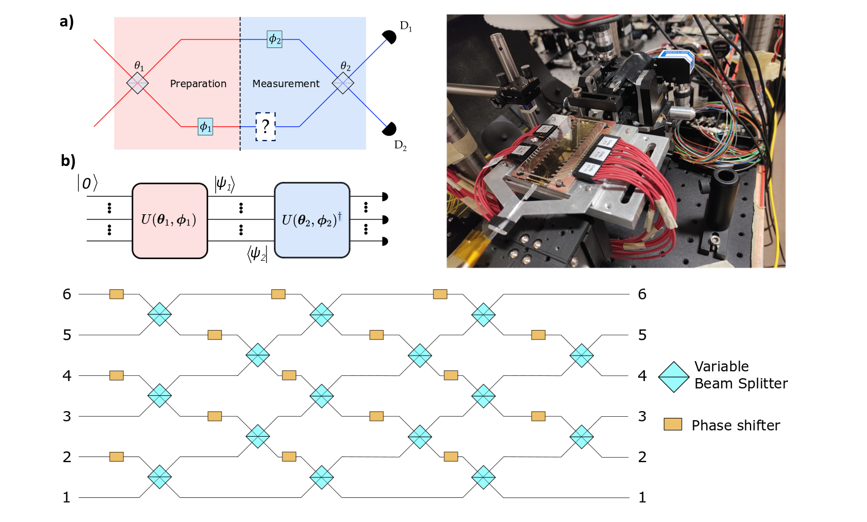Programmable integrated optical circuits are among the leading architectures for quantum information processing, enabling tests of foundational properties of quantum mechanics, with applications in metrology, cryptography, and computation. The nonclassical processing of information encoded by quantum states of light in these devices lies at the core of these applications. As new devices grow in size and complexity, there is an increasing need for reliable methods to certify the quantum resources they provide, and map out how best to use them for information processing.
In the work “Experimental certification of contextuality, coherence and dimension in a programmable universal photonic processor” published on Science Advances, we experimentally certify coherence witnesses tailored for quantum systems of increasing dimension, using pairwise overlap measurements enabled by a six-mode universal photonic processor fabricated with a femtosecond laser writing technology. In particular, we show the effectiveness of the proposed coherence and dimension witnesses for qudits of dimensions up to 5. We also demonstrate advantage in a quantum interrogation task, and show it is fueled by quantum contextuality. Our experimental results testify to the efficiency of this novel approach {for} the certification of quantum properties in {programmable integrated photonic platforms.
The work is the results of a long-standing collaboration between Quantum Lab, the Quantum and Linear-Optical Computation Group led by Prof. Ernesto Fagundes Galvão, and the FAST Group guided by Dr. Roberto Osellame. This research line is supported by the National Quantum Science and Technology Institute (NQSTI), the Italian funding for fundamental research on quantum technologies. It was also partially supported by ERC Advanced Grant QU-BOSS, Horizon Europe project FoQaCiA, and by Portugal’s FCT – Fundação para a Ciência e a Tecnologia.

